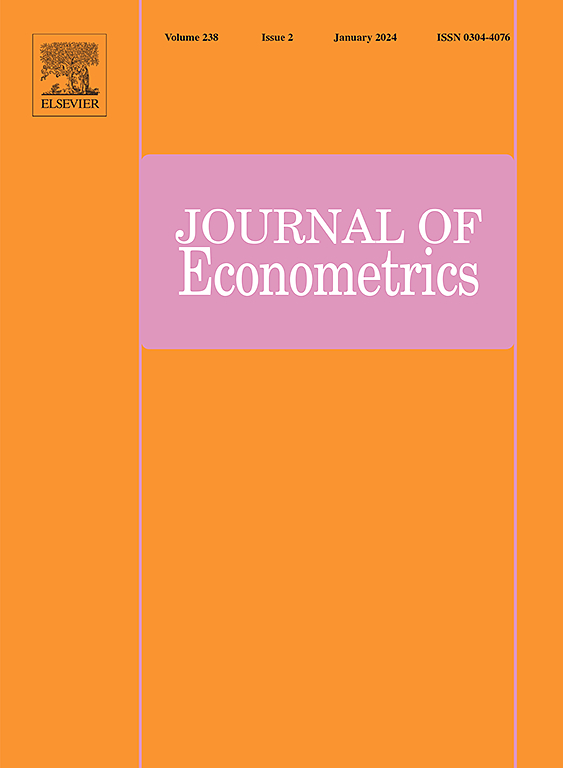基于广义Fisher变换的多元随机波动模型
IF 4
3区 经济学
Q1 ECONOMICS
引用次数: 0
摘要
多变量随机波动(MSV)建模可能会带来重大挑战,特别是当方差和协方差都是时变的时候。在本研究中,我们通过引入基于Archakov和Hansen(2021)提出的广义Fisher变换(GFT)的新型MSV模型来解决这些复杂性。我们的模型显示出显著的灵活性,确保了方差-协方差矩阵的正确定性,并解开了波动性和相关性的驱动力。为了对模型进行贝叶斯分析,我们采用了粒子吉布斯祖先抽样(PGAS)方法,促进了贝叶斯模型的有效比较。此外,我们扩展了MSV模型,以涵盖杠杆效应并纳入已实现的措施。我们的仿真研究表明,该方法对基于gft的MSV模型具有良好的性能。此外,基于股权回报的实证研究表明,MSV模型在样本内和样本外的表现都优于其他规范。本文章由计算机程序翻译,如有差异,请以英文原文为准。
Multivariate stochastic volatility models based on generalized Fisher transformation
Modeling multivariate stochastic volatility (MSV) can pose significant challenges, particularly when both variances and covariances are time-varying. In this study, we tackle these complexities by introducing novel MSV models based on the generalized Fisher transformation (GFT) proposed by Archakov and Hansen (2021). Our model exhibits remarkable flexibility, ensuring the positive-definiteness of the variance–covariance matrix, and disentangling the driving forces of volatilities and correlations. To conduct Bayesian analysis of the models, we employ a Particle Gibbs Ancestor Sampling (PGAS) method, facilitating efficient Bayesian model comparisons. Furthermore, we extend our MSV model to cover leverage effects and incorporate realized measures. Our simulation studies demonstrate that the proposed method performs well for our GFT-based MSV model. Furthermore, empirical studies based on equity returns show that the MSV models outperform alternative specifications in both in-sample and out-of-sample performances.
求助全文
通过发布文献求助,成功后即可免费获取论文全文。
去求助
来源期刊

Journal of Econometrics
社会科学-数学跨学科应用
CiteScore
8.60
自引率
1.60%
发文量
220
审稿时长
3-8 weeks
期刊介绍:
The Journal of Econometrics serves as an outlet for important, high quality, new research in both theoretical and applied econometrics. The scope of the Journal includes papers dealing with identification, estimation, testing, decision, and prediction issues encountered in economic research. Classical Bayesian statistics, and machine learning methods, are decidedly within the range of the Journal''s interests. The Annals of Econometrics is a supplement to the Journal of Econometrics.
 求助内容:
求助内容: 应助结果提醒方式:
应助结果提醒方式:


